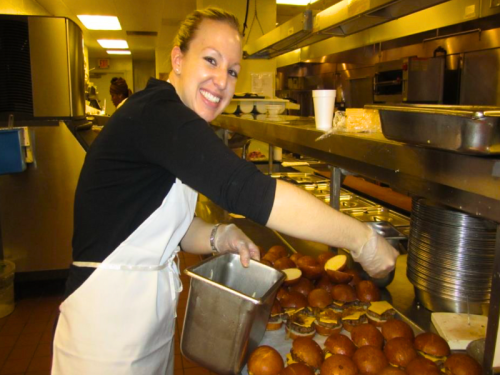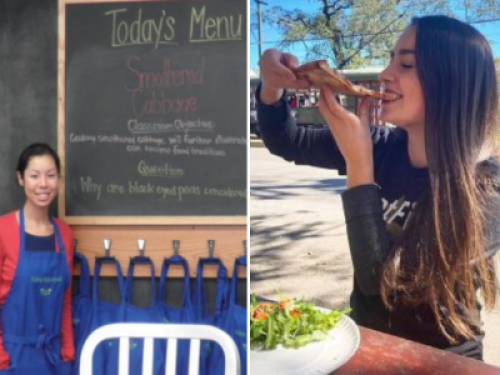50 Classes Later, Tulane’s Dietetic Internship Still Provides Unique Learning Experience

This Friday a special milestone in the Tulane School of Public Health and Tropical Medicine will be reached as the 50th class of dietetic interns will celebrate graduation from the program to become registered dietitians.
For a program that has been in place since October 1990, it represents a time for reflection on the impact that more than 30 years of graduates – 468 in total and counting – have had on the world.
“Dietitians are becoming more prominent as time goes on, and there's more awareness that nutrition is an important part of health and daily living,” clinical assistant professor and program director Marsha Piacun said. “And now people get a hold of strange diets, fad diets … there is a lot of competition out there with not totally correct info.”
“You absolutely need skilled registered people to be able to guide what is necessary for a patient to get better. But there are so many things that a dietitian can do,” she added.
The SPHTM dietetic internship is the clinical practice component of becoming a dietitian (similar to a residency for physicians), taking place after most or all of a student’s master’s curriculum.
Starting in 2024, a master’s degree is required for graduation, a change from previous requirements.
The current iteration of the program is a 10-month experience wherein students gain experience working with dietitians in various positions throughout New Orleans and the surrounding areas.

That experience is programmed around a prioritization of variety in skills gained, with students encouraged to visit an array of dietitians (sometimes more than 20) to learn a wide range of viewpoints and get a better understanding of the breadth of paths they can take in their careers.
“A lot of programs are just students going and spending a whole semester at one place working with the same people. And you know, it's experience, but it's not the same thing as we're providing with the great variety,” Piacun said. She cautions students that if they like a familiar setting, knowing exactly where they are going to park and who they will be working with, this program might not be the one for them. But if they have an adventurous spirit and want to learn a wide variety of useful skills, this program will be a great fit.
The program didn’t always look that way.
When it got its start in the early 90s under then director Dr. Ann Metzinger, it boasted just two students and was only a semester long.
That format allowed two different groups of students to take part in the program in a given year, but it limited the number of different experiences students could have over a six and-a-half month period.
Still, the modern program retains the original intent.
“The traditional older view of what a dietitian was doing: building menus and helping people with their diets and giving instructions, outpatient and inpatient, etc. That's still there. It continues to be a big part of what it is,” Piacun said.
In addition to Metzinger, directors have included Dr. Cheryl Atkinson and Jodi Zighelboim. Piacun took on leadership of the Dietetic Internship in 2006 following Hurricane Katrina.
Piacun stabilized the program during that rough period and has remained a steadying influence since. Under her guidance, 314 students have received their certification.
On Friday, the newest class of 19 graduates will join them. Helping to produce all of those dietitians is a point of pride for Piacun.
“Fifty classes of helping to supply dietitians to South Louisiana and the rest of the US is very significant,” she said. “I’ve had [organizations] calling or emailing me, ‘Can I have a few more students?’ and students graduating saying that as soon as they got their feet wet, they'd be ready to take students and start teaching. That's a fun part, to see people who were quite happy that they ended up in jobs that they liked and were ready to give back.”

Many students have graduated to take on traditional dietitian work, though unsurprisingly, many have found more specialized positions. Patients with specialized needs (such as sick babies, people with allergies, etc.) continue to need focused expert care. Many businesses – from service industries to sports teams and all points in between – now employ full-time dietitians.
Regardless of changes over the years, one thing has remained a constant: an ever-present need for more dietitians.
“There's a big need for dietitians, still, nationwide,” Piacun said. “The need is greater than the amount of people available for the jobs at this point. There definitely are jobs to be had nationwide for people who are interested in working in this field.”
The Dietetic Internship Program at SPHTM, the only program of its kind in New Orleans, is accredited by the Accreditation Council for Education in Nutrition and Dietetics (ACEND) of the Academy of Nutrition and Dietetics.
